Disclosure: Meeple Mountain received a free copy of this product in exchange for an honest, unbiased review. This review is not intended to be an endorsement.
Spectral is a competitive deduction game, and an unusual one at that. The haunted house you and your fellow players explore, represented by a 4 x 4 grid of semi-randomized facedown cards, is full of gems and curses. You want the gems. Not so much the curses. You figure out where they are by placing any quantity of your explorer pieces in the space between any two rooms and then looking at the contents of one of them.
“The contents” is somewhat misleading. The rooms in this house don’t tell you what they have inside. They tell you about the contents of other rooms. On the face side, each card shows either a curse or, more likely, a gem, and one of four symbols. The symbols tell you where the shown item is located.
This card, for example, tells me that a gem is located on the opposite side of the grid:
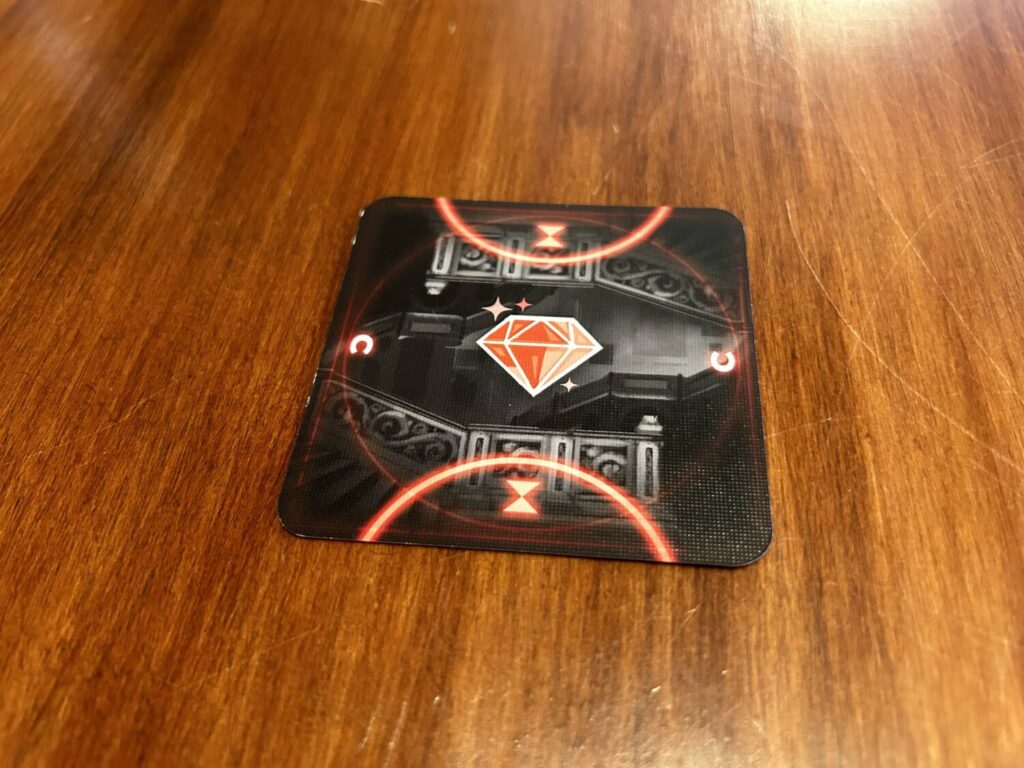
This card tells me that a curse is in whichever room is a two-space move diagonally:
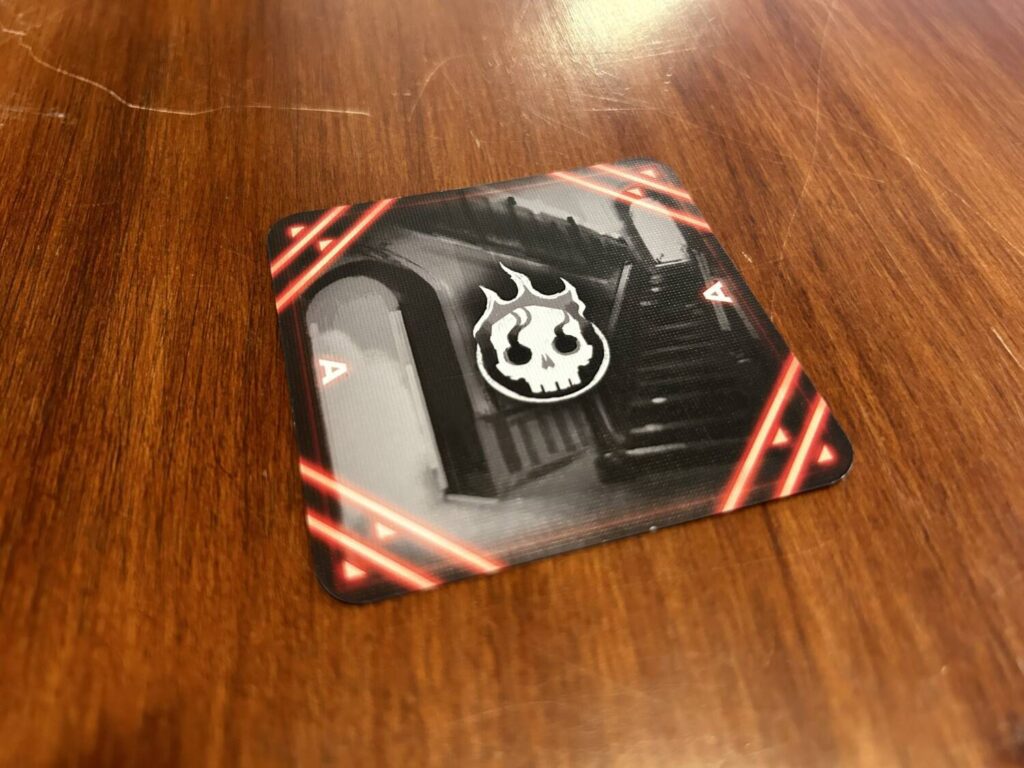
You spend most of the game placing pieces around the grid and gathering information, taking notes in the provided notebooks all the while.
Information is not the only purpose for those pieces. At the end of the game, once all the rooms have been revealed and all the gems and curses have been placed on the board, gems are divvied up amongst the players with pieces surrounding that room. Each gem, conveniently enough, is worth 12 points, and easily divisible by two, three, or four, whatever the circumstances may be.
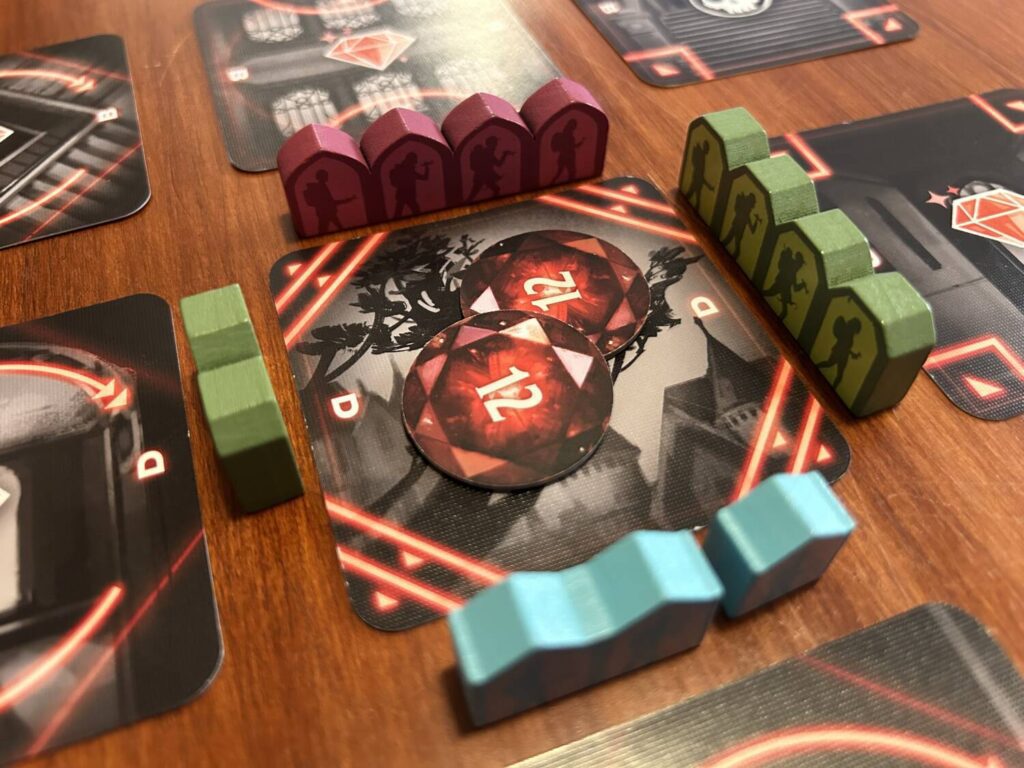
Curses, on the other hand, evict adjacent players before final scoring. In many ways, it’s better to learn the locations of the curses than it is the gems. Gems you can take your chances on. Curses? Curses are bad.
There’s an element of bidding around piece placement. You can give other players the boot from what seems to be a particularly lucrative spot by placing twice as many pieces in the same location. You can even replace your own pieces, which introduces aspects of bluffing that I adore. If I realize I’ve placed one piece next to a spot with a curse, who’s to say I can’t convince someone else that I’m onto something good by replacing it with two or three? One of the great challenges of deduction games is making them interactive, and Spectral has found just about the best way to go about it that I’ve seen.
Unused pieces are worth points at the end of the game too, and, depending on the player count, they’re worth quite a bit. You always have the option to pass on your turn, if you think it better to hold on to your pieces than to risk a poor return. You’ll never have time to look at every room. By the end of the game, you’re making tough choices based on possibilities and hunches.
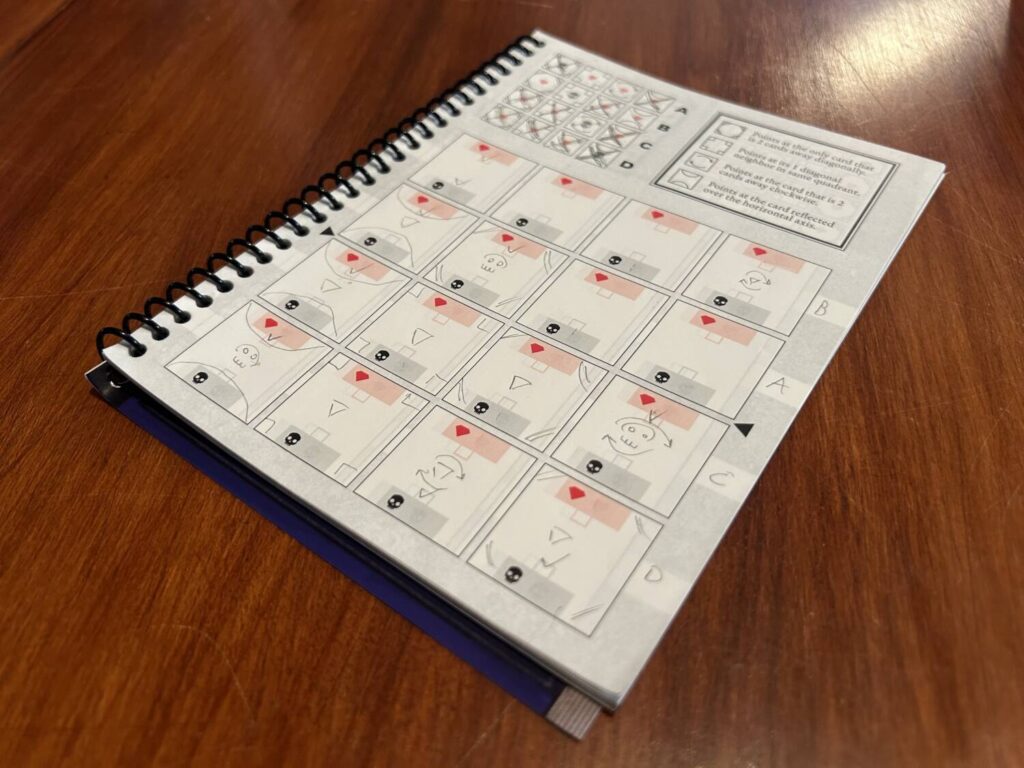
I have nothing but praise for Spectral. Designer Ryan Courtney, of Pipeline fame, manages to marry the tradeoffs of area control and auction games with a satisfying puzzle, and all in about thirty minutes. Spectral is clever, interactive, easy to teach, and satisfying. Plus, the final reveal of all the rooms provides a nice moment of drama. It doesn’t get much better than that.
Spectral is one of the first two releases in publisher Bitewing Games’s new series, Deep Clean. The idea of the series is to meld complex game states and emergent play with streamlined rulesets. They’re speaking my language. That’s all I want. Spectral is about as good a start as you could ask for.
Oh!, and on top of all that, it comes in a fairly small box. You know what, maybe 4.5/5 is too low. Maybe we finally did it. Maybe this is a perfect game. It sure feels like it.


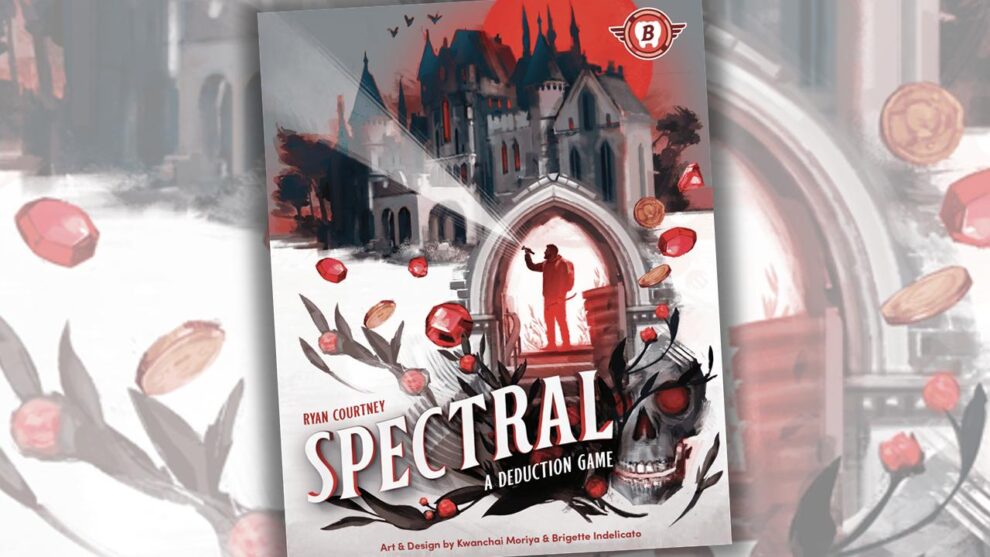









Add Comment